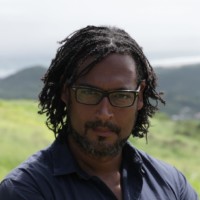
During Mortgage Solutions’ Diversity and Inclusivity Finance Forum (DIFF) leadership masterclass, Olusoga said Black and colonial history was interwoven into many of the events that shaped Britain today.
He said this explained why conversations about modern racism following the Black Lives Matter protests in last year centred around historical people and events.
Olusoga said: “Histories – many of them connected to those stories of slavery, empire and race that have been papered over, unprocessed for centuries – are now coming to the surface.”
He said this was partly down to the British education system, which tended to leave out the part Britain played in slavery and how that contributed to current successes and wealth.
For Olusoga, it was only when he went to university that he learned the cotton which helped to bring about the 18th century Industrial Revolution in the north of England was picked by enslaved people in the Americas.
“That story is intimately interconnected with the story of American slavery. And American slavery in a large part is funded and fuelled by Britain’s economic and banking wealth.
“The mortgages that were used to buy the land and the enslaved people in the deep south came predominantly, overwhelmingly, from British banks. The British were invested in every stage,” Olusoga said.
Olusoga also made reference to traditions typically associated with Britain such as drinking tea.
He said the tea originated from China and was grown in India for the British market. The sugar cane harvested to sweeten tea came from Asia but was grown in the Caribbean by African slaves and drank in crockery commonly dubbed ‘China’.
He said Britain’s customs were “global by its absolute nature” but said people tended to “disguise the global, colonial aspects of our history and our culture”.
Processing realities of the past
History has been used by some as a source of recreation and comfort, making it difficult for people to reckon with the harder parts of Britain’s past, Olusoga suggested.
However, he said history was meant to be challenging and the focus should be on what actually happened rather than what people wanted it to be.
He said: “Some nations are able to confront the darker chapters of their history and to process them and take them on board. That is the nation Britain needs to become.
“It is history and relevant to all of us. Without it we start telling falsehoods, like an industrial revolution that doesn’t mention slavery,” he added.
As well as looking at the legacy of Britain, Olusoga said it was also necessary to look at the nation’s trajectory and acknowledge how things had progressed over time.
He said: “One of two things can be possible; either we are the luckiest people in the world to have ever lived because we are the only nation in history that’s only done good. Always been on the right side of history.
“Or Britain is like every other country that’s ever existed. It’s done some good stuff and it’s done some bad stuff.”
Acknowledging our shared histories
When asked why politicians did not use recent events to review Britain’s history, Olusoga said it was not being addressed because it created an opportunity to use division for electoral gain.
Alternatively, companies have been taking it upon themselves to address Britain’s past independently of state action.
Olusoga said multiple organisations were looking into their financial DNA, how it connected to the legacy of slavery and imperialism to issue reports and recommendations for restorative justice.
He said reparations could become an option for organisations to come to terms with their past, make amends and address current inequalities in society.
On an interpersonal level, Olusoga said people had the responsibility to listen to those who are part of Britain’s multicultural society, as it was worse to deny their histories now the truths had been unveiled.
Olusoga said: “What you’re asking in modern Britain, is for people for whom this history can never be anything other than horrific, people who are descendants of enslaved people – you’re asking them to pretend this wasn’t the case.
“You’re saying: ‘We know that this means something different to you, we know that your ancestors were victims of this, but we’ve decided our desire to live in a fantasy world is more important than confronting the pain your ancestors went through’.”
He added: “We can’t let our history and men who have been in their graves for two centuries stand in the way of us becoming the diverse, multi-cultural and forward-thinking country that anyone who has a belief in Britain could see we could become.”















